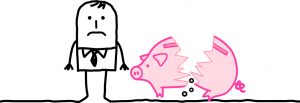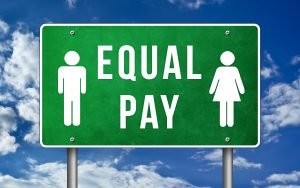As we begin 2020, we enter the busiest time of year for lateral attorney hiring. Law firms are less focused on on-campus interviewing and concertedly devote more attention to hiring laterals for busy and growing practice groups. Also, more lateral attorney candidates begin their job searches following annual reviews, bonus distributions, and promotion decisions. With this in mind, we thought it would be helpful to share our insight and some of the most useful preparation activities and strategies for lateral associate interviews. Research is conclusive: More interview preparation significantly increases the probability succeeding in the process.
Macro Interview Advice and Typical Law Firm Interview Structure
As a preliminary matter, as intuitive as it sounds, know that it is important to be relaxed and yourself at the interview. The sooner you are cognizant and mindful of this, the more likely you are to avoid being overly anxious. It is common to be nervous before an interview, though when overtaken by anxiety, it can affect our memory and ability to appear confident and knowledgeable. Interview preparation and the assurance of having carefully thought-out responses for interview questions can help alleviate pre-interview nervousness. While the interview does assess your relevant experience and legal acumen, it is also an acquainting (i.e. getting to know you) process, and being able to carry a conversation exuding a calm and positive temperament will make a lasting favorable impression on your interviewers.
Also, know that you have all the requisite credentials for the position, and you would not have received an interview if you were unqualified. Although interview preparation is key, meeting firms’ hiring criteria with good grades from a top-ranked law school and a peer-firm background are some of the greatest barriers to entry. At the interview, the firm is primarily evaluating if you have exposure to, and a genuine interest in, the types of matters the practice group handles. The firm is also assessing if your personality meshes with its culture (e.g. collegiality and being team-oriented). Your objective at the interview is to clearly articulate your relevant experience and these qualities through conversations with your interviewers. The content scope of law firm interviews mainly entails discussing transactions and matters you have handled and is less focused on hypothetical data-analysis questions common in investment banking and consulting interviews.
With respect to the format of law firm associate interviews. Most firms have a two-round process. The initial interview is typically with one or two practice group leaders followed by a second-round interview with four or five additional attorneys, including a mix of partners and associates. Essentially, you are preparing for micro-interviews of 30 to 35 minutes with each person or group of people on your interview schedule. Though each interviewer is unique, you can expect common themes and similar questions when meeting with most of the attorneys.
Where to Start: Study the Firm and Practice Group Inside and Out Using Key Resources
One core interview question to expect is “why are you interested in this position and firm?” Having substantive familiarity with the firm and practice group you are interviewing with is critical. Partners want to hire associates who are uniquely enthusiastic about their firm and practice and imparting your knowledge and understanding of the firm will convincingly demonstrate this. Being able to reference specific transactions or matters in your answers to questions is impactful (e.g., “I am particularly interested in the M&A practice group at your firm because of the opportunity to apply my drafting and negotiating experience on PE buyouts within the healthcare sector”).
Beyond reviewing the firm’s and practice group’s website. Key resources to study in your preparation checklist are Chambers and Partners (local practice group reviews), Vault, The Legal 500, The American Lawyer, and NALP firm profiles. These materials delve deeper into the firm’s background, composition, client-base, matters handled, interview style, and recent news and strategic developments. Make sure to obtain your interview schedule as early as possible and review the attorneys’ bios and, specifically, recent representative matters, news, and recognition or awards. Also, the attorneys’ LinkedIn profiles are helpful to see if the attorneys have lateraled to the firm themselves. We here at Lateral Link have a range of general and exclusive access resources allowing our candidates to leverage comprehensive market intelligence beyond what is in the public domain. A reputable recruiter should be knowledgeable about the particular firm’s and practice group’s structure, culture, and work assignment system and should be able to provide insight and intel based on their strong relationships with the firms and from the experiences and feedback of past-placed attorneys and interviewees.
Practice Describing the Matters You Have Handled and Keep it Conversational
Another standard behavioral question genre to expect is “tell me about your experience” or “tell me about a case or deal you enjoyed handling recently.” Perhaps one of the most useful interview preparation activities is to think of four to five matters you have recently worked on and be able to describe them in two minutes or less. Choose transactions or cases that are similar to the interviewers’ and firm’s representative matters. Remember interviews work best when they flow as an ordinary two-way conversation and are not merely you explaining why you are qualified for the position. This can lose the interviewer’s attention and present as overly confident or arrogant. Instead, you want to subtly sell yourself through conversation. Detailing tangible examples of transactions or cases that are comparable or complimentary to the firm’s practice most effectively conveys that your experience aligns well with the position. For example, if you are interviewing with an asset-based lending focused finance practice group, you can describe a recent syndicated secured credit-facility transaction you worked on either in response to a question or as a logical follow-up to a matter the interviewer discussed. Having these examples in your back pocket to use throughout the interview process is invaluable and will allow you to illustrate the skills you have developed and how you would positively contribute to the practice group.
As you formulate your recent matter descriptions, organize them succinctly. Legal fact patterns and transactions can be laborious, and you will want to summarize the matters by focusing on the key parties involved, transaction type or cause of action, and your role in the particular matter. For example, an M&A associate could use:
We recently represented a PE sponsor in the acquisition of a financial services technology company where I had the opportunity to take the first cut of drafting the asset-purchase-agreement. There were significant representations and warranties and provisions structured into the deal to mitigate risk to our client regarding a pending IP litigation matter. With many moving pieces and interests, I carefully crafted a hold-back provision that sufficiently covered potential litigation costs and incorporated the valuation of losing the patented technology. Ultimately, the acquisition was successful, and our client was able to considerably expand their presence in the financial services sector. They were also contractually protected from any potential litigation drain on profitability.
In organizing matter descriptions, some of our candidates prefer to use the STAR (Situation, Task, Action, Result) or SOAR (Situation, Obstacle, Action, Result) formats to concisely detail their relevant experience. Finally, you should practice your matter descriptions out loud in front of a mirror or through a mock-interview with your recruiter (this also applies to all other question responses).
Answering “Why are You Looking for a New Position?”
Answering the question of “why are you looking to leave your current firm?” is a two-step approach. The first step is to make sure to not say anything negative about your current firm and focus on your experience gained. Speaking negatively about your current firm is unprofessional and, even if you are unhappy at your current firm, emphasize the value of the substantive experience you have received and how you will utilize those foundational skills as an associate with the prospective firm.
The second step in answering this question is to transition into discussing why you are particularly interested in the firm you are interviewing with. This is another opportunity to exhibit your knowledge about the firm and discuss how joining the firm would be a good fit from a practice perspective. For example, a litigator potentially joining a top securities litigation practice group, may emphasize being intrigued by the chance to be part of a robust nationally recognized securities class action practice. They can then discuss specific cases of interest. Also, if you are relocating to another market you should highlight ties to the city you are interviewing in, such as family and friends in the area or your experience growing up there. If you are waiving into the bar or taking an upcoming exam in the jurisdiction, you should discuss the steps you have taken to become licensed to further evidence your commitment to the market.
Answering “What is a Weakness that You Have?” or “Tell Me About a Time You Wish You Had Done Something Differently?”
This is probably one of the trickier questions that arises in a law firm interview. In asking this question, the firm is looking for introspection and the ability to adapt and learn. In responding, you should use a weakness example that is fair and honest and discuss how you addressed the weakness and improved from it. For example, a products liability litigation associate could discuss adapting and improving their deposition questions for depositions of CPSC (Consumer Product Safety Commission) employee witnesses regarding product recalls: “I adapted and drafted better deposition outlines by learning the fundamental regulatory question framework. I read through many deposition transcripts of similar CPSC employees while drafting my deposition outlines. By implementing this method, I was better able to structure questions to obtain favorable summary judgment testimony.”
In terms of what to avoid with this question, be sure to not use a weakness that will interfere with your ability to perform as an associate, such as weaknesses related to analytical deficits (e.g. missing key issues in matters or fact patterns), meeting tight deadlines, organization, and working in teams. Also, do not use artificial qualities in your answer, such as “I am an overachiever” or “I work too much.” Additionally, avoid discussing continuing weaknesses that are unresolved and only use weaknesses you have corrected. Finally, only discuss weaknesses related to your work experience as the firm is looking for something in the context of your experience as an attorney.
Preparing Questions to Ask the Interviewers.
Make sure to have questions prepared for the portion of the interview, when the attorney interviewer asks “what questions do you have for me?” In this segment of the interview, you will want to have meaningful questions beyond asking about readily ascertainable firm facts. These questions should continue to demonstrate your specific interest in the firm and intellectual curiosity about the practice. More probing questions can include: “Are there particular aspects of the firm and practice group that you have enjoyed most?” (especially relevant if the attorney has practiced with other firms); “The team’s role in the merger of two pharmaceutical companies is intriguing, can you tell me more about your experience being part of that transaction?”; and “Where do you see the direction of the practice group heading over the next five years?” Other questions that demonstrate drive and initiative are: “Is there a particular type of associate who thrives in the practice group?” or “What are the matters you are currently handling that you are most interested in?”
Remember, in the interview phase, firms are interested in the value you will bring to the firm and therefore your line of questions should not focus on the benefits or opportunities the firm will provide to you. Thus, avoid asking questions about what training is available, billable hours, and, of course, compensation. Firms can interpret these questions as having concern about the amount you will work or showing a lack of self-sufficiency or experience. While these are valid job search considerations, we recommend waiting until the offer stage to address them when you have more leverage. Also, a trusted recruiter should be able to answer many of these questions and can advise on how to innocuously approach these topics.
In the lateral process, interview preparation is essential to your success. Taking the time to review key materials and market intelligence and practicing responses to question genres will substantially distinguish you from other applicants and improve your odds of receiving an offer. Our renowned team of dedicated expert recruiters at Lateral Link thoroughly prepares our associate and partner candidates for their interviews giving them an edge. If you or someone you know is interested in making a lateral move, feel free to connect with a member of our team and we are happy to assist.
This is the latest installment in a series of posts from Lateral Link’s team of expert contributors. Jesse Hyde is a Director based in the Chicago office where he oversees attorney placements and client services in Chicago and throughout the Midwest. He specializes in placing associates, partners, and in-house counsel with leading Am Law 100 and 200 law firms and premier corporations. With a proven successful track record, Jesse advises attorneys, law firms, and companies through all stages of the recruitment and hiring process to effectively reach their objectives. Jesse received his J.D. from Loyola University Chicago School of Law where he was on the Dean’s List and a Member of the Loyola University Chicago Law Journal. Jesse received his B.A. from the University of Michigan and majored in history. Before recruiting, he practiced as a commercial litigation attorney with a Chicago-based law firm for four years.





 Kathryn Rubino is a Senior Editor at Above the Law, and host of
Kathryn Rubino is a Senior Editor at Above the Law, and host of 





